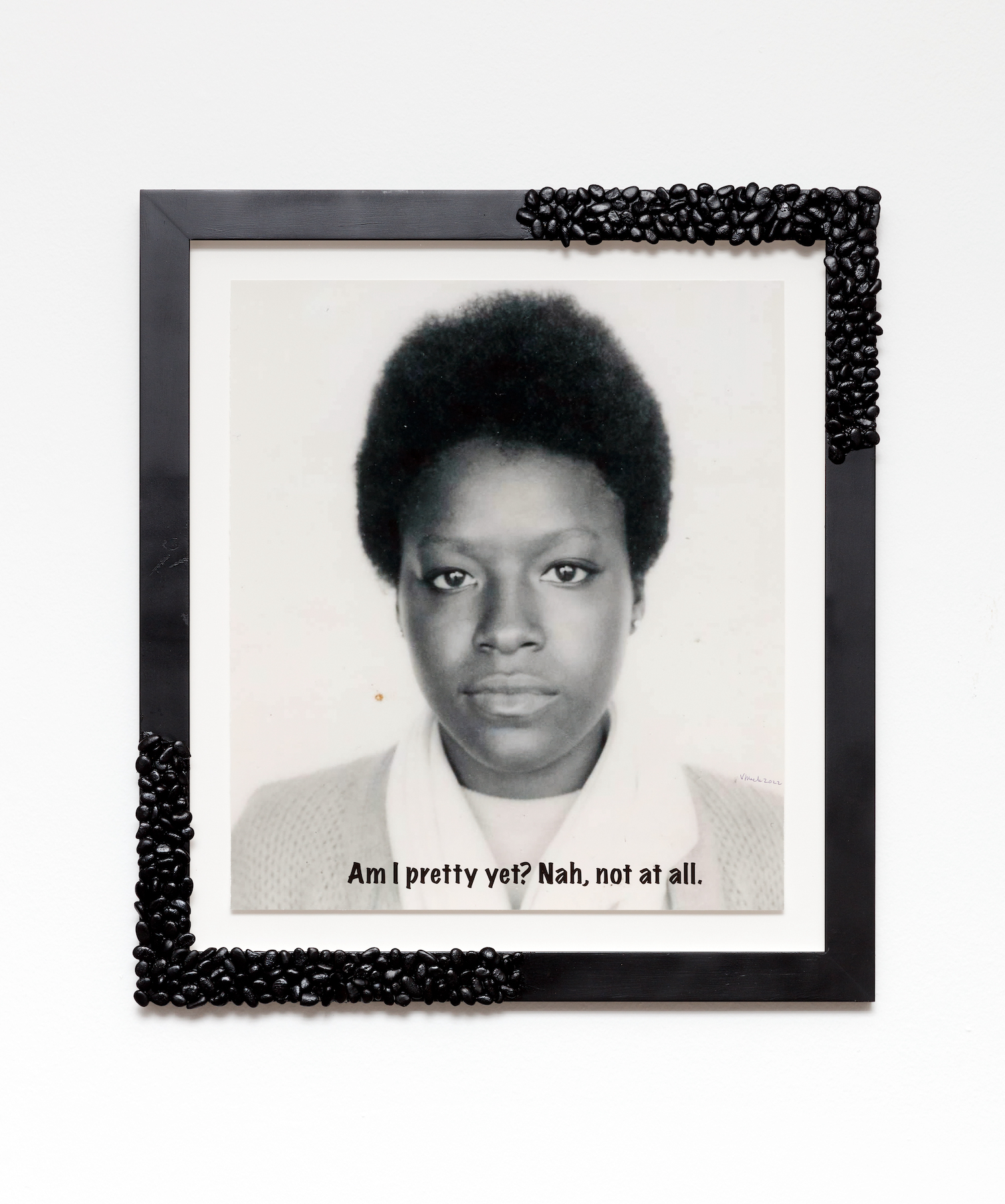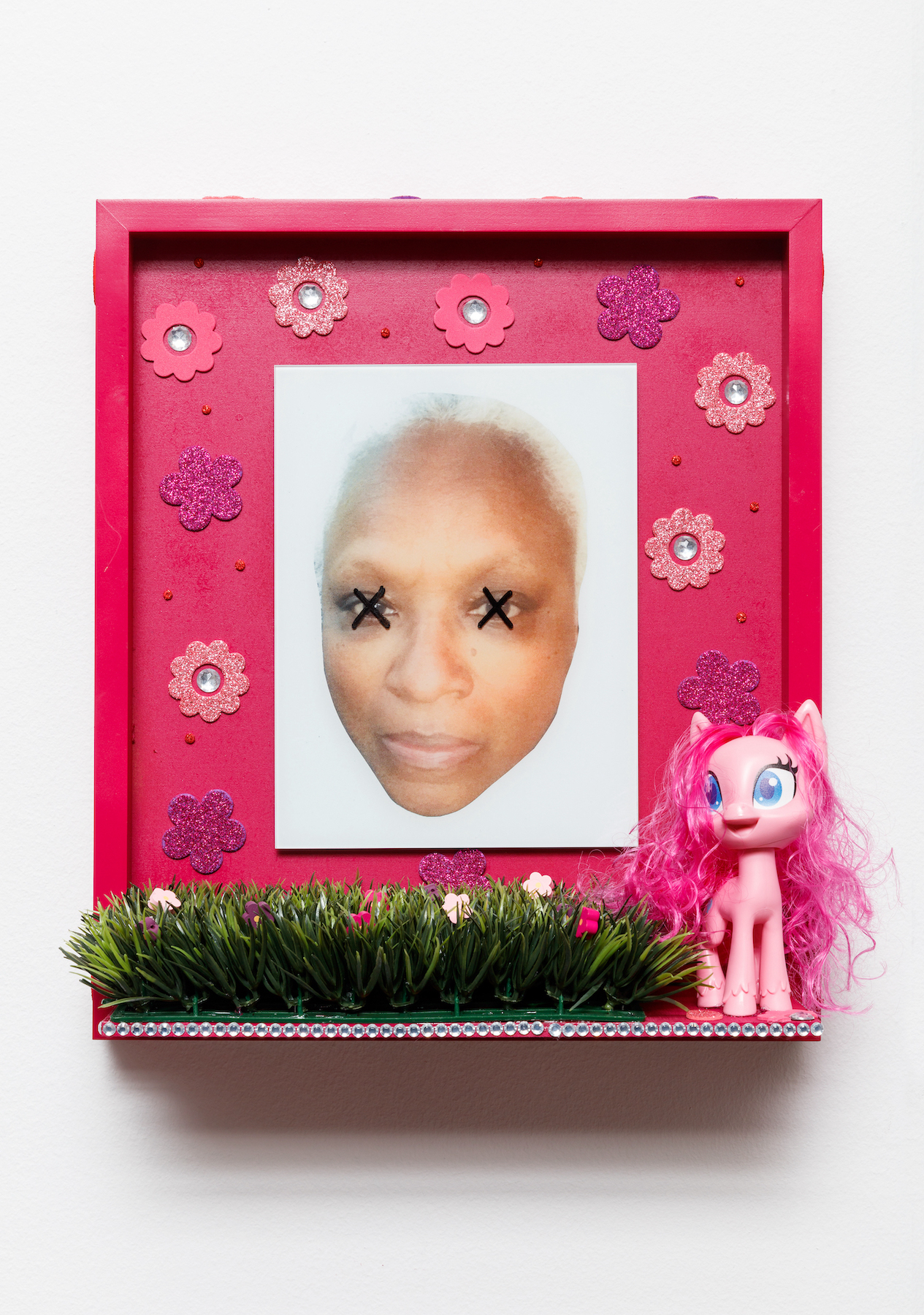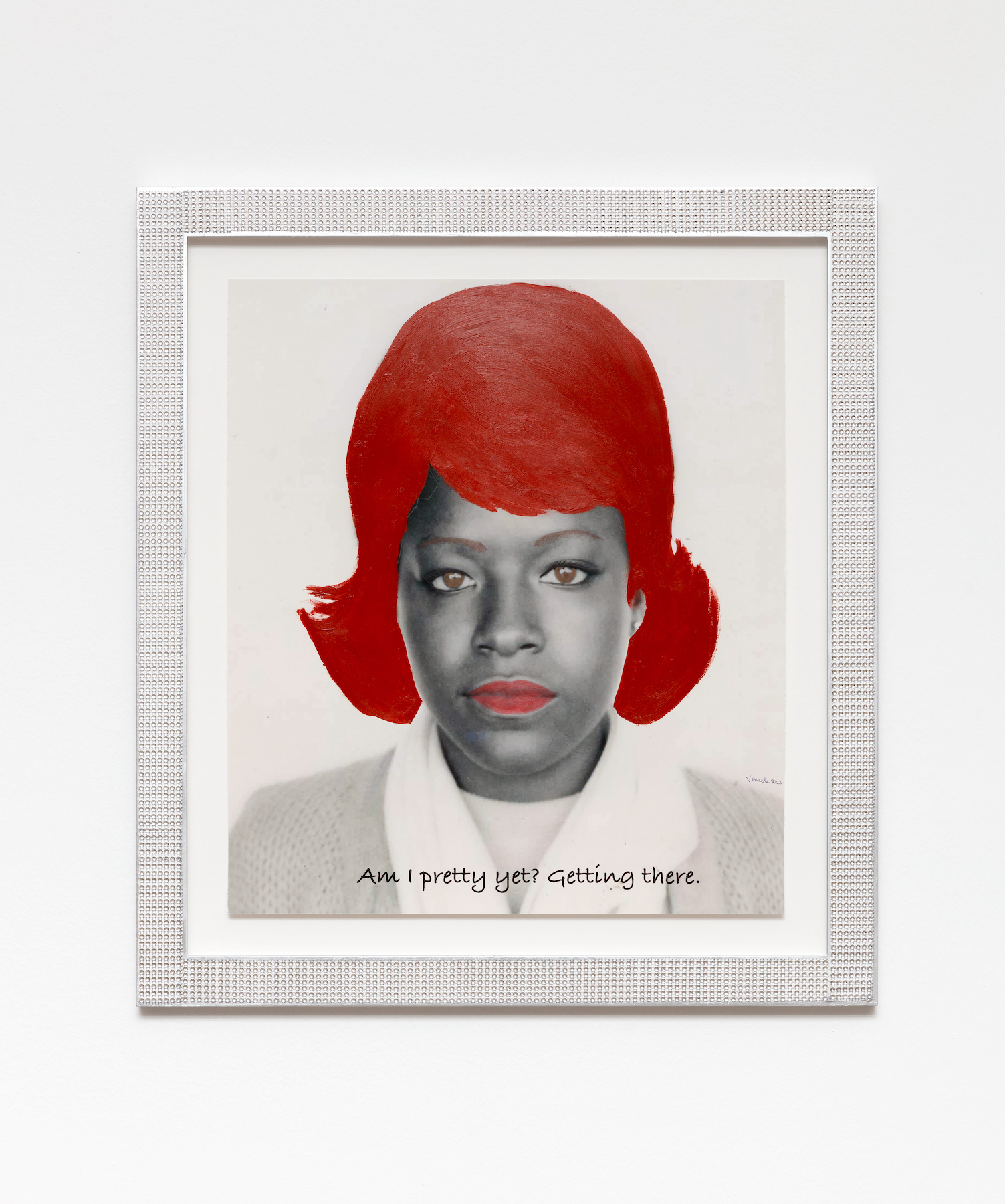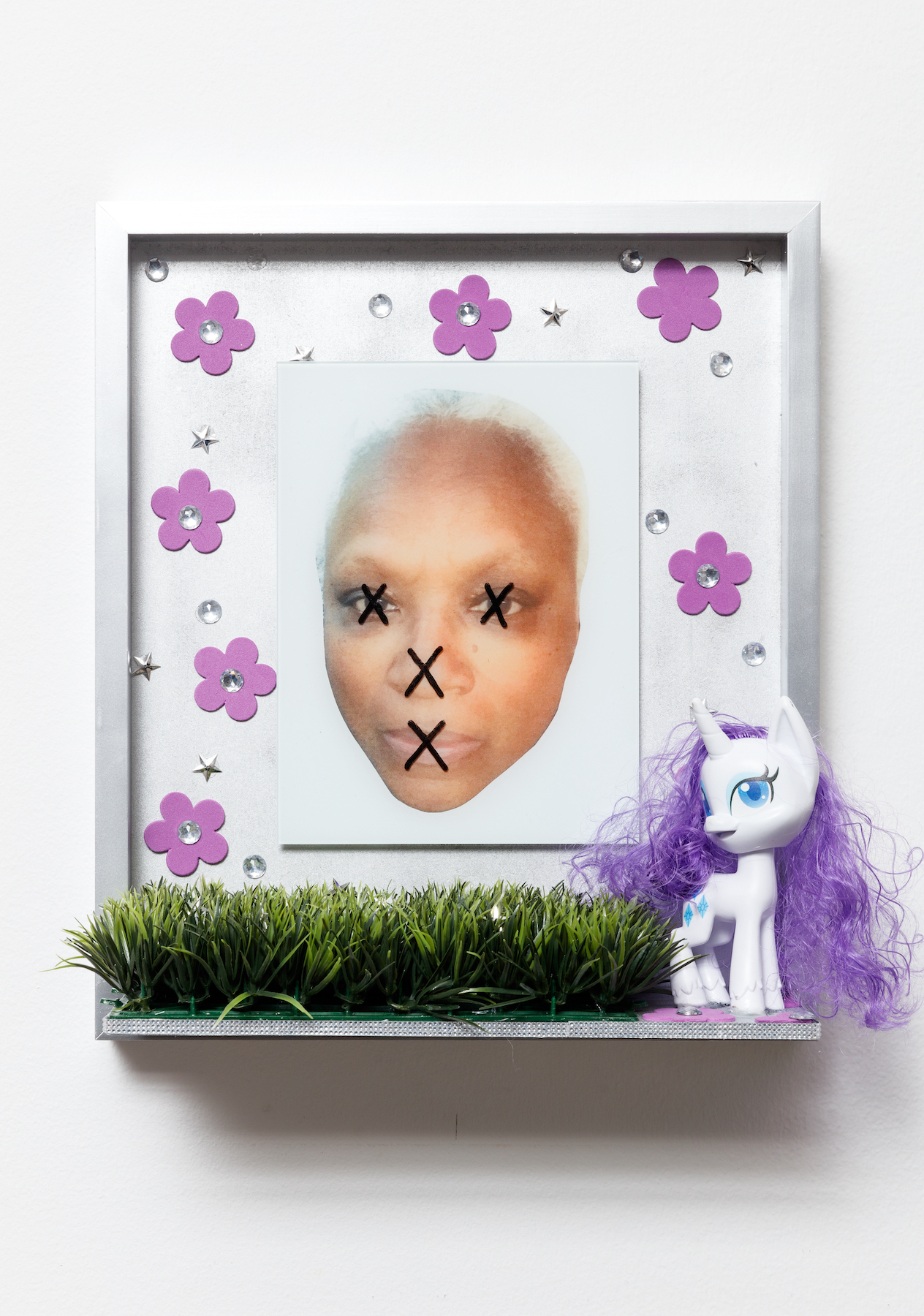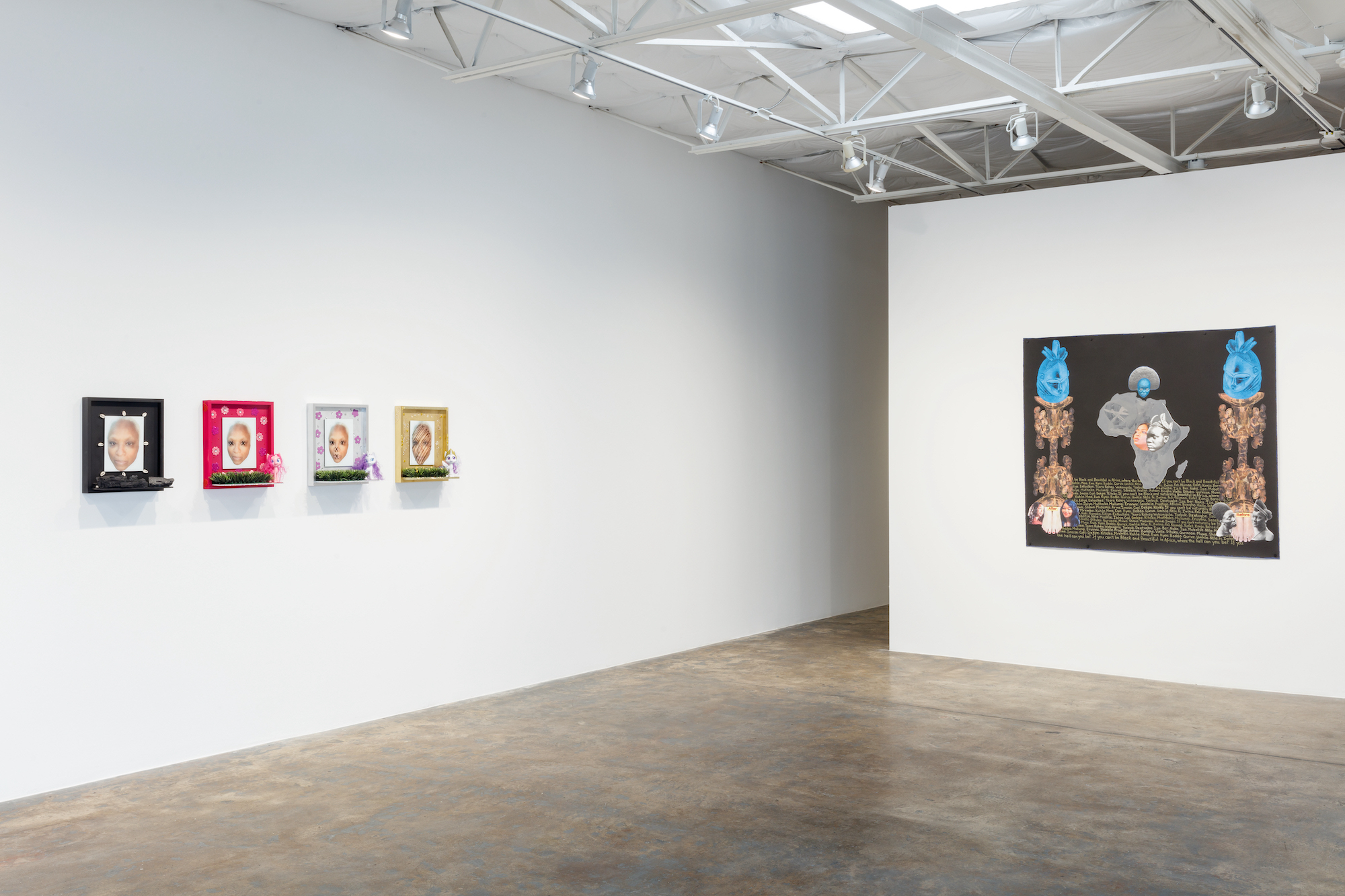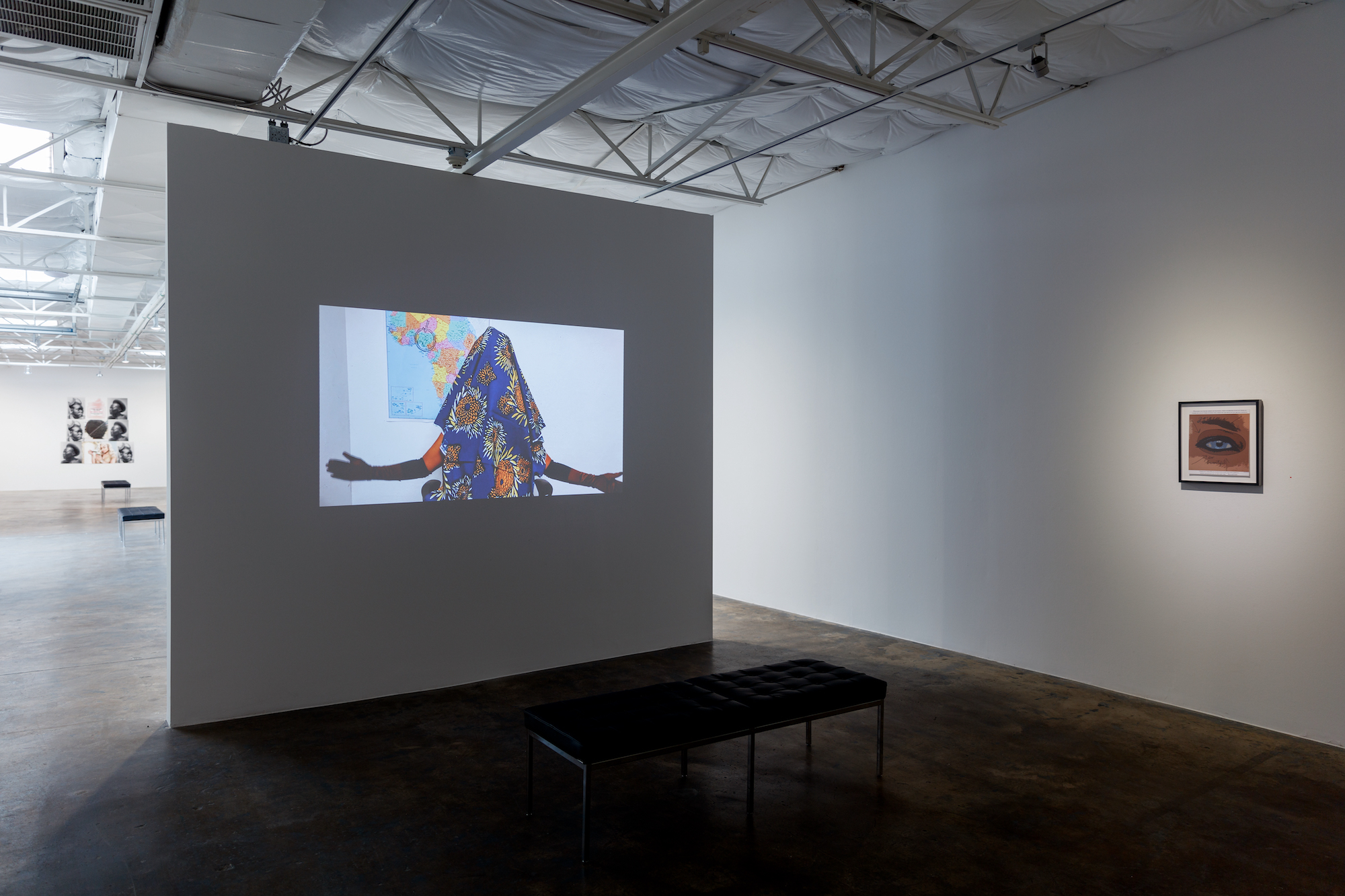Vicki Meek
At What Point Do We Disappear?
Black Women’s Obsession with White Femininity
Talley Dunn Gallery
April 23 – July 9, 2022
Talley Dunn Gallery is immensely honored to announce a solo exhibition of renowned and nationally recognized artist Vicki Meek. The artist’s inaugural exhibition at the gallery, At What Point Do We Disappear? Black Women’s Obsession with White Femininity, will be on view April 23 – July 2, 2022, with an open house and artist reception April 23.
Skin bleaching, hair straightening, eye and body altering all have provided tangible examples of the erasure of Blackness from our concept of beauty. Not surprisingly, 400+ years of cultural indoctrination has taken its toll on concepts of beauty in the Black community. The proximity to whiteness has become the gold standard in determining beauty, so Black women have been chasing that standard in a myriad of ways for generations. Enslavement and colonization produced a culture of self-hate that often manifests in ways sometimes not even perceptible by the Black community.
I am exploring in At What Point Do We Disappear: Black Women’s Obsession with White Femininity how deeply ingrained this self-hate is, not only here in America, but also in Africa where women sport long, straight haired wigs and bleach their skin in attempts to “lighten up” their complexion so that they can be more appealing to African men. This fascination with whiteness extends beyond simply skin color and hair texture. It manifests in obsessions with light colored eyes, thin bodies, as well as altered noses and lips.
Clearly, all women, whatever their racial group, are constantly faced with standards of beauty that are unreachable thanks to media images replete with idealized models. But in the case of white women who aspire to attain this idealized beauty, they need not change the basic physical qualities of their racial group to realize this standard of beauty. Black women must reject their fundamental physical being if they are to attain this standard. Even the so-called natural movement exhibits an inability to totally reject white femininity as we witness countless examples of how to have curls not kinks by using a variety of hair products. The message is clear: curls=desirable, beautiful; kinks=undesirable, ugly.
I liken the inculcation of white femininity in the Black female psyche to the diminution of our souls. We erase aspects of ourselves in the process of creating a beauty aesthetic that has so many roots in white femininity. At what point do we simply disappear?
– Vicki Meek
Vicki Meek, born and raised in Philadelphia, Pennsylvania, is a nationally recognized artist who has exhibited widely. Meek is in the permanent collections of the African American Museum in Dallas, The Museum of Fine Arts in Houston, Fort Wayne Museum of Art in Indiana, Paul Quinn College in Dallas, Serie Art Project in Austin and Norwalk Community College in Norwalk, Connecticut. She was awarded three public arts commissions with the Dallas Area Rapid Transit Art Program and was co-artist on the largest public art project in Dallas, the Dallas Convention Center Public Art Project.
Meek was selected as one of ten national artists to celebrate the 10th Anniversary of the Nasher Sculpture Center with the commissioning of a site-specific installation. Meek’s retrospective Vicki Meek: 3 Decades of Social Commentary opened in November 2019 at Houston Museum of African American Culture and marked the end of her concentrating solely on her installation practice as she moves into creating work using video as the primary medium. She dubs these new works video comments since they are no more than 8 minutes in length and are done in a series format.
Vicki Meek has been awarded a number of grants and honors including National Endowment for the Arts NFRIG Grant, Dallas Observer MasterMind Award, Dallas Museum of Art Otis and Velma Davis Dozier Travel Grant, Texas Black Filmmakers Mission Award, Women of Visionary Influence Mentor Award, Dallas Women’s Foundation Maura Award, nominated for the Louis Comfort Tiffany Foundation Award, the African American Museum at Dallas, A. Maceo Smith Award for Cultural Achievement and was selected as the 2021 Texas Artist of the Year by Art League of Houston.
In addition to having a studio practice, Vicki Meek is an independent curator and writes cultural criticism for Dallas Weekly with her blog Art & Racenotes and also wrote a monthly column, ARTiculate for TheaterJones, an online performing arts magazine.
Meek was an adjunct faculty member for UMass Arts Extension Program in Amherst, Massachusetts where she taught a course in Cultural Equity in the Arts. With over 40+ years of arts administrative experience that includes working as a senior program administrator for a state arts agency, a local arts agency and running a non-profit visual arts center, after 20 years, Vicki Meek retired in March 2016 as the Manager of the South Dallas Cultural Center in Dallas. She served on the board of National Performance Network/Visual Artists Network 2008-15 and was Chair from 2012-2014. In 2016, Meek was selected to be a Fellow in the Intercultural Leadership Institute and also became a Voting Member of Alternate Roots, a national artist service organization.
Vicki Meek currently spends time as Chief Operating Officer and Board Member of USEKRA: Center for Creative Investigation, a non-profit retreat for creatives in Costa Rica founded by internationally acclaimed performance artist Elia Arce. She is also Dallas Mayor Eric Johnson’s at-large appointment to the Arts and Culture Commission and the Public Art Committee. Meek is represented by Talley Dunn Gallery in Dallas, Texas.


